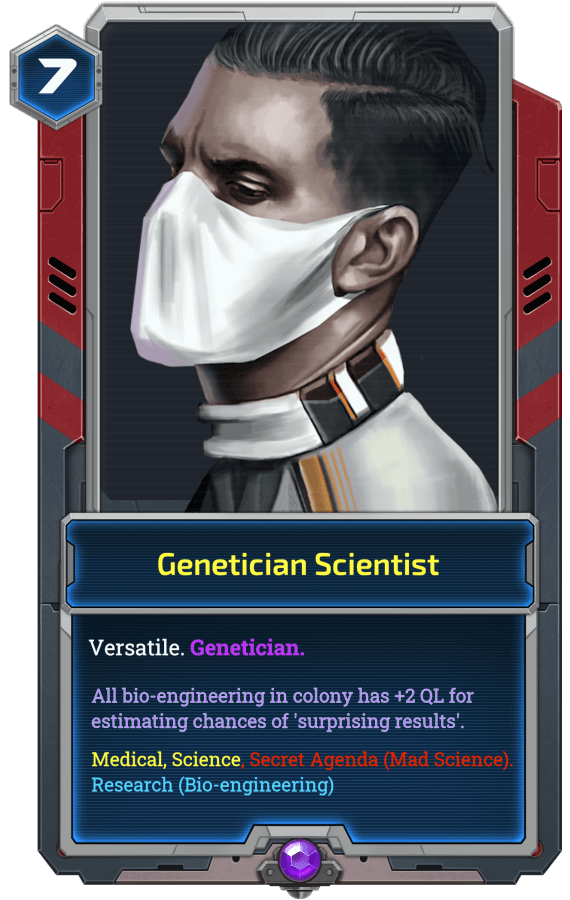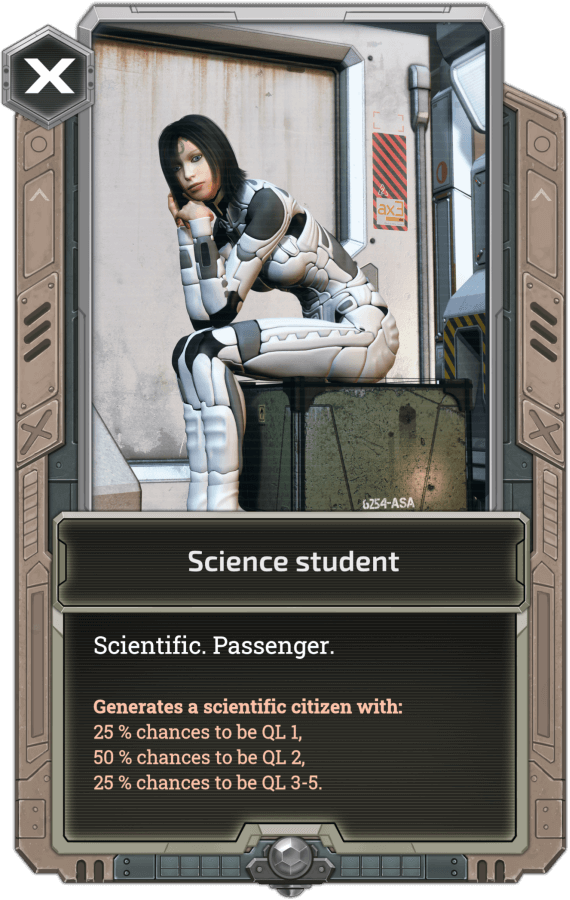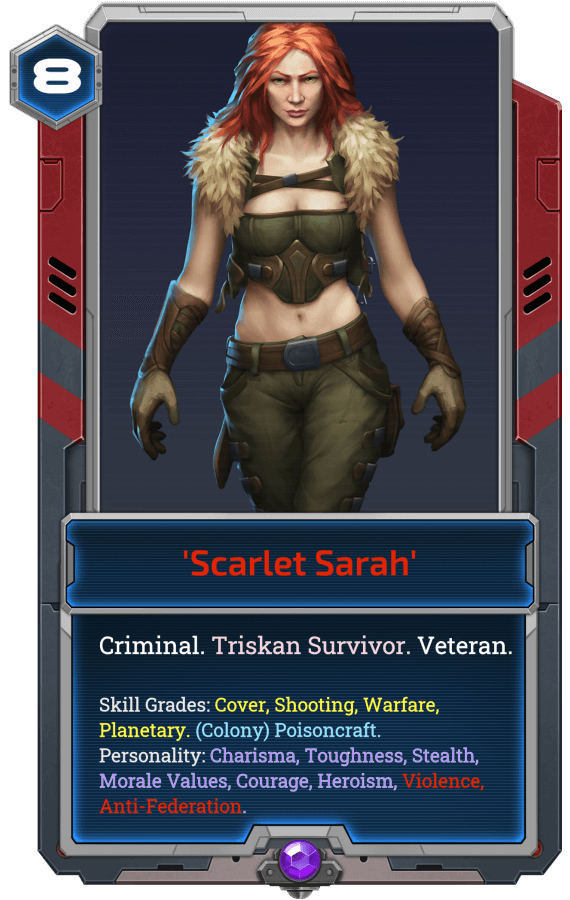Exploration, Discovery, Collecting & Crafting
The first harsh truth of colonization is when you finally truly realize that the supplies you brought aren't going to last forever. Food and energy will likely be the first items to run out in a month or less – but, eventually, everything will need to be either home-grown/produced or bought from the Interstellar Supply Market. And the latter always brings up the question of “How are you going to pay for it?”
From day 1, and probably lasting for years, your colony is likely going to be performing a cycle something akin to the following:
1. EXPLORATION / RESOURCE DISCOVERY & COLLECTION
The first thing your characters have to do (after setting up your prefabs) is to explore and discover what resources are available. When a potential resource is discovered, the explorers (or a better equipped party) will need to collect some of those resources for analysis. Collecting resources can be as simple as finding and picking “some flowers” – or as difficult as digging or drilling to extract underground energy or mineral resources which were located by recognizing geological formations and other hints that indicated their presence.
Most non-biological resources don't vary from planet to planet and can likely be used “as is”. On the other hand, most purely biological resources are almost assuredly something that has never been seen before. For many or most applications, this means that the resource can't be effectively used until a lot is figured out about it. There are also many important resources which were initially biological but are used for their material properties (trees, fuel, etc). For applications like creating energy or shelters and other buildings, you probably don't need to know much at all. Indeed, the most common and critical type of biological resource which straddles this line is, of course, food.
2. RESEARCH / IDENTIFICATION & COMPARISON
The scientific method is necessary to reliably determine the attributes of a given resource. Of course, the “scientist” involved could always be the poor slob who volunteers to see if that fruit has the traits “edible” or “poisonous”. However, trained scientists (those with the science skill) with the proper equipment (lab space, chemical kits, etc.) do tend to do a much better job both more quickly and more safely than the human lab rat. They also stand a much better of identifying any long-term ill effects. Further, if the resource truly has never been seen before, your crew will get a one-time opportunity to name it whenever they feel that they've decided upon the perfect name.
 – however, some long-term effects may be impossible to anticipate
– however, some long-term effects may be impossible to anticipate
Due to the miracle of convergent evolution, many biologicals have similar traits and/or produce similar chemicals to answer similar environmental imperatives – and thus, your colonists may be able to use them in the same way as a more familiar item and get the same result. For example, eggs are a common solution to the challenge of reproduction. Since eggs tend not to have the toxic and other dangerous traits of fully grown members of the species, they can be a valuable food resource. Indeed, they're surprisingly likely to be able to be used “as is” either scrambled or in bread.
3. REPLACE EXISTING RECIPE ITEMS WITH NATIVE ITEMS
Food is pretty easy to experiment with and make new recipes, so let's consider something more difficult like drugs, medicines or, even, poisons. In these cases, you're going to need a real research scientist (or, at least, nearly adult student who has taken some serious lab courses – or maybe even a non-scientist with a very particular set of skills, like your favorite poisoncrafter Scarlet Sarah) to be able to extract and identify the various chemicals and organic molecules present. It'll take some trial and error to figure out how to modify the recipe/formula to achieve the desired results – but eventually you'll be able to replace your dependence upon a foreign export for a locally-grown/produced one. If you're lucky, you'll be able to repeat these steps several times to develop a fully home-grown result to reduce your dependence upon foreign sources or, better yet, to sell for a profit.
Creating high-quality fuel is likely equally complex and potentially equally profitable. Your native fuel is likely to have unknown “additives” or impurities. You'll be using chemicals from previously unknown native sources with even more unknown additives/impurities to refine your fuel. But, who knows whether those “bonus” substances might also catalyze your fuel to burn hotter or more cleanly or make your production processes tremendously more efficient.
4. DESIGNING NEW RECIPE/FORMULA VARIANTS
Sometimes, native items with the traits necessary for a given known recipe/formula will also have one or more additional traits of interest. In these cases, you have an excellent opportunity to create a “variant” of the known formula to create a better version. Such enhanced products are often unique and valuable items that you can sell on the Interstellar Supply Market (Galactic Silk Road) at high prices to buy those items which your colony is not yet able to replicate. Medicine (and drugs) are particularly likely to be lucrative.
Generally, the unusual traits will suggest the goals that may be possible (more performance, additional effects, fewer drawbacks, less weight or less cost/time to produce). As you would expect, the more numerous and difficult your goals, the more research time it needs and the higher the chances of failure. This is particularly true if the local components are deficient in some way.
It should also be noted that, while crafting variants can push the line of being “invention”, designing and creating totally new items without existing recipes, formulas or blueprints is a much more exacting and difficult task. Thus, true invention is unlikely to be performed in a colony's early days unless it faces some unique circumstance or hardship. This is especially true since continuing to explore the planet to find new and better resources is often a much quicker route to the riches that we all desire.





